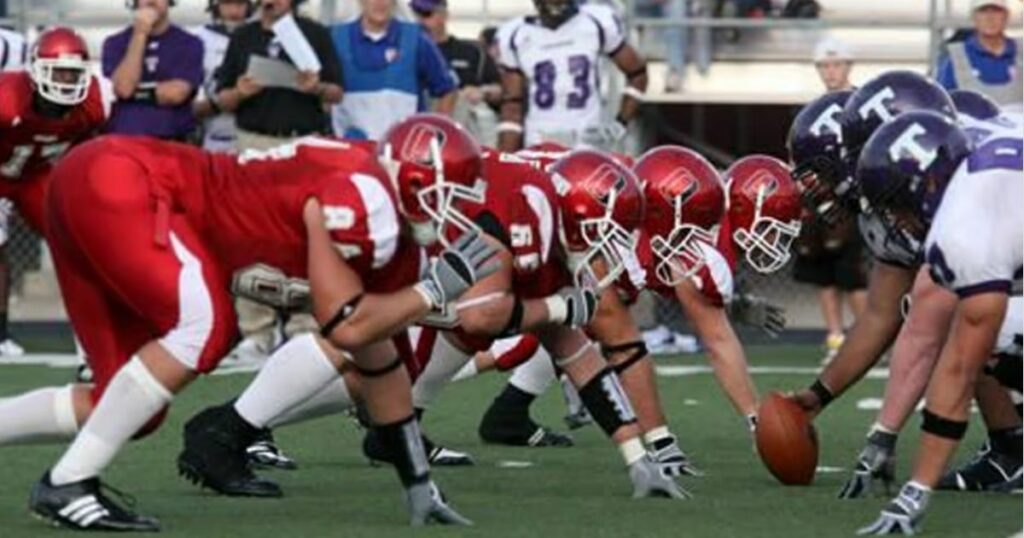The Effects of Football on the Body
The effects of football on the body can be pretty detrimental if athletes don’t take the right measures to keep a healthy body.
Apart from the usual injuries that are bound to happen in the field because of the nature of the sport, there are long-term effects that can change the course of life.
This doesn’t mean that playing football or any professional sport is automatically bad or detrimental; it just means that there’s a way to keep the body feeling and being healthy for years to come.
At Nebraska Greats Foundation, our goal is to give back to the Nebraska athletes who make our community better by helping assist them with their medical needs and ensuring they have bright and healthy futures.
That’s why prevention is one of our top priorities when it comes to sports; we want to make sure these athletes are taking the necessary measures to stay safe.
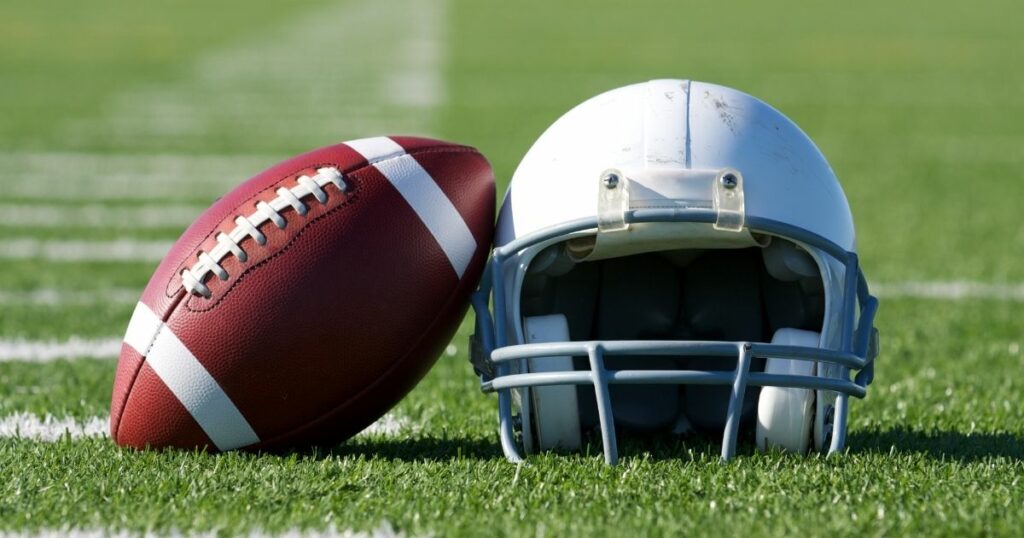
The Body is a Tool
Football, as many of us already know, is a sport that combines athleticism, strategy, and teamwork.
It’s played by millions around the world, from children in schoolyards to professional athletes in colossal stadiums, so it might seem like a harmless game because, most of the time, it is.
However, when we talk about the professional field, varsity teams, and the big leagues, like any physical activity, it can have profound impacts on the body when practiced daily. Some positive, some negative.
In any professional sports, the athlete uses their bodies as the main tool to win these games, so it’s only natural that constant training and practice shape the body.
In this blog post, we’ll explore the key health issues associated with playing professional football and provide advice on how to manage them for a long, healthy career.
What Does Football Do to Your Body?
Professional football is a high-contact, physically demanding sport. From sprinting and jumping to tackling and being tackled, the body is subjected to a wide range of stresses. This, of course, can lead to a variety of health problems.
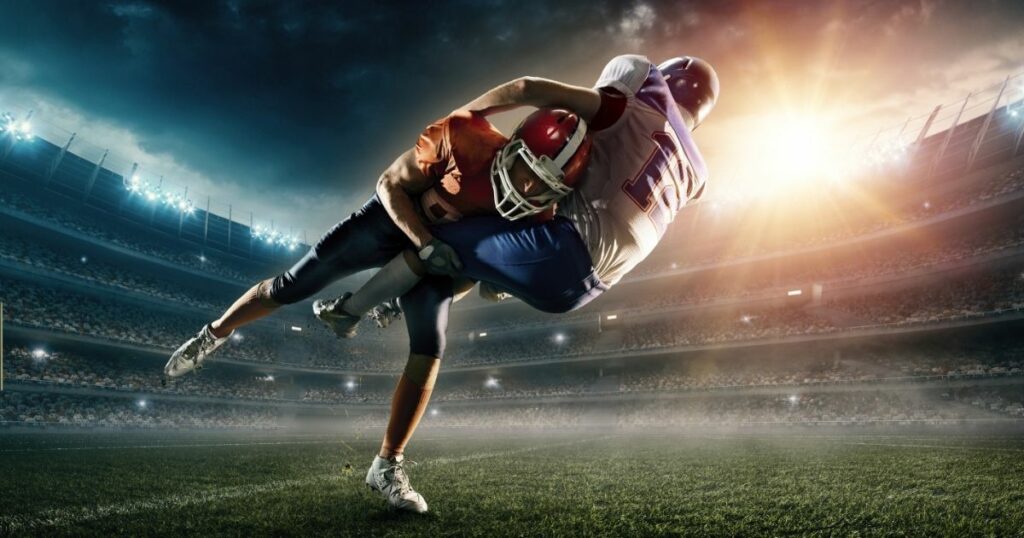
Musculoskeletal Injuries
These are the most common types of injuries in the sport and sometimes, if not treated correctly, can have long-term effects on the body.
Musculoskeletal injuries, common in high-intensity sports like football, encompass a range of conditions such as sprains, strains, fractures, and dislocations.
The treatment for these injuries varies depending on the severity and type. Mild sprains and strains can often be managed at home using rest, ice, compression, and elevation. Over-the-counter pain relievers can also be used.
In contrast, fractures and dislocations usually require immediate medical attention. They might involve immobilizing the injured area with a cast, splint, or brace, and in severe cases, surgery may be necessary.
Physical therapy is always recommended during the recovery process to regain strength and mobility and to stop long-term effects from happening to the body.
Concussions
Concussions are a prevalent health concern for football players, or any athlete for that matter.
Largely due to the recurrent head-on collisions that typify the sport, concussions are almost inevitable.
The effects of these injuries can be immediate and short-term or long-term, depending on the case.
A concussion can have no permanent effects and might need no therapy, however, some of the most severe effects can be one or some of the following:
- Memory problems
- Constant headaches
- Chronic Traumatic Encephalopathy (CTE)
- Recurrent loss of consciousness
- Sensitivity to light and sound.
However, up to 90% of concussions occur without the loss of consciousness, making them potentially tricky to diagnose on the field.
The good news is that most of them are treatable and can also be prevented with the proper gear and armor of the uniforms.
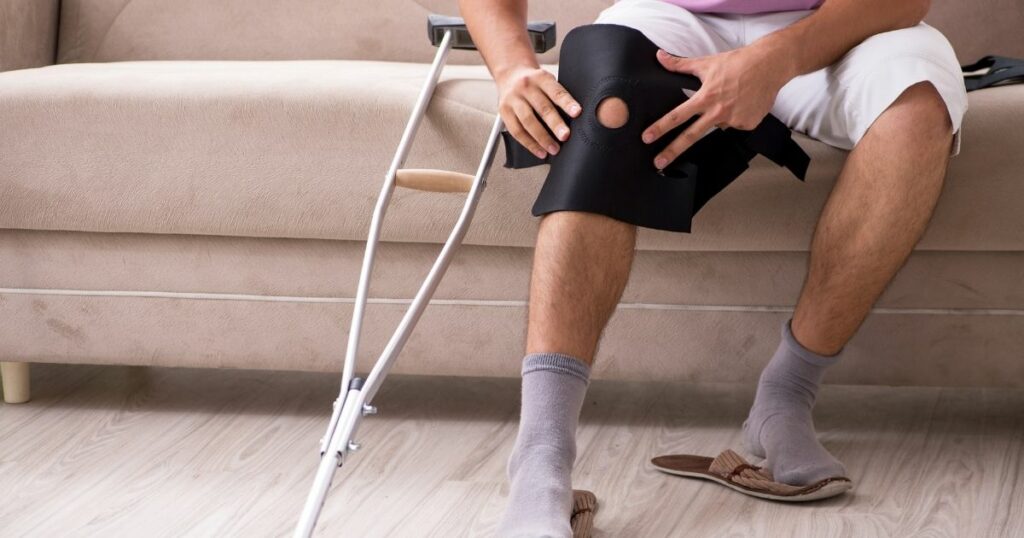
Chronic Traumatic Encephalopathy (CTE)
Chronic Traumatic Encephalopathy (CTE) is a progressive, degenerative brain disease associated with repeated traumatic brain injuries. It’s been found in many former professional football players.
The condition is characterized by the gradual death of nerve cells, which can cause a range of symptoms that worsen over time.
Early symptoms often include problems with attention, memory, mobility and function, mood swings, and impulsivity.
As the disease progresses, individuals may experience severe issues such as motor impairment, speech difficulties, aggressive behavior, depression, and even dementia.
We know that this might sound pretty traumatic, but CTE can be easily prevented in pretty much any case.
While there’s no cure for CTE, research is ongoing to develop treatments and interventions that might slow or stop its progression.
Current strategies focus on improving the quality of life for athletes affected; the NGF can help with the funding of these treatments.
Prevention is currently the most effective approach to avoid these conditions. The importance of reducing head impacts, implementing strict concussion protocols, and promoting the use of protective equipment will be the best way to avoid CTE.

Osteoarthritis
Osteoarthritis is another long-term condition that can result from repeated football activity.
However, this is a condition that progresses over time and might have no immediate effect on the body but rather start showing years later.
Osteoarthritis is caused by the continual stress on the joints, it can lead to premature wear and tear of the cartilage and flexible tissue that cushions the ends of bones within a joint.
This condition can result in pain, stiffness, swelling, and reduced range of motion in the joints that are affected.
While osteoarthritis can affect any joint in the body, it most commonly affects the hands, knees, hips, and spine.
For football players, the condition specifically impacts the knees and hips due to the physical demands of the sport.
So, how can we prevent this from happening to our bodies?
Currently, there is no permanent cure for osteoarthritis, but various treatments can help manage symptoms and improve quality of life.
These include pain relief medications, physiotherapy, exercise, weight management, and, in severe cases, joint replacement surgery.
Yes, we know this might sound repetitive, but prevention strategies are crucial! Using protective gear, adhering to proper techniques, and maintaining a healthy weight can help reduce the risk of osteoarthritis in athletes.
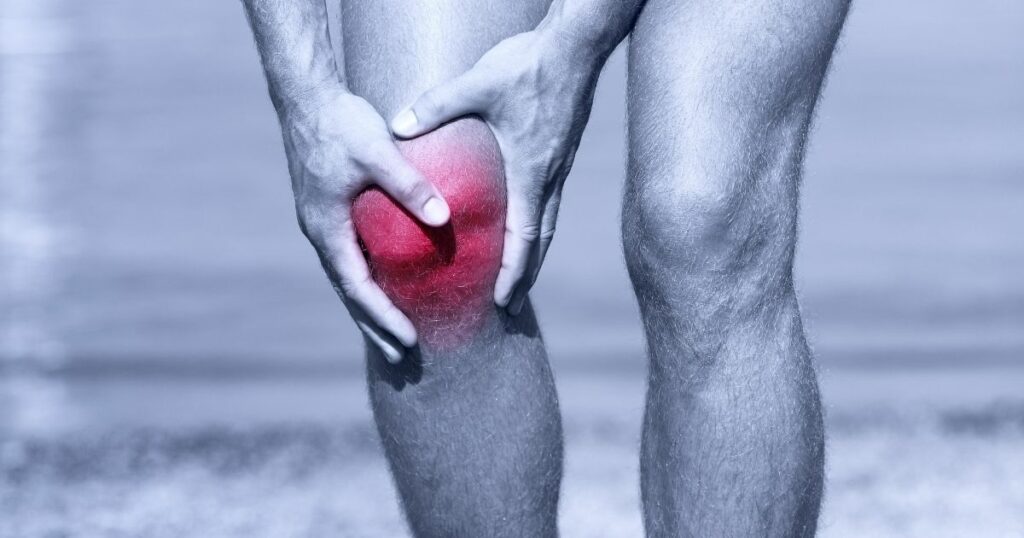
Mental Health Issues
We all know that the social pressure in an athlete’s life can be pretty harsh, especially when his career or scholarships depend on their performance on the field.
That’s why mental health issues, including anxiety and depression, are a growing concern in the realm of football.
While some individuals may initially appear resilient to these pressures, the impact on their mental health can manifest in the body in various ways over time.
Poor mental health can significantly affect an athlete’s ability to concentrate, make quick decisions, and maintain endurance, all of which are critical for peak performance.
It can also lead to physical symptoms like fatigue, insomnia, and decreased appetite, further damaging the athlete.
Athletic injuries can also negatively impact an athlete’s mental health. That’s why we believe that physiological therapy should be a reachable resource for every athlete in Nebraska, no matter the time or injury.
Check-in with your athlete colleagues and ask how you can help. A helping hand can be just what they need.

Treatment and Prevention
So, how can you make sure you are taking all the necessary steps to prevent an injury that can damage your body in the future?
1- Immediate Medical Attention
Any sports-related injuries should be evaluated and treated by medical professionals who know what they are doing.
Ignoring injuries or treating them with non-professionals can lead to complications or chronic conditions in the future.
2- Regular Check-ups
Some conditions are silent and unperceived. Regular medical check-ups are a crucial part of injury prevention.
These check-ups can help detect potential health problems before they become severe.
3- Proper Equipment
Yes, we said this before, but we need to say it again: using the right protective equipment is essential in reducing the risk of injuries.
It’s important to ensure that all equipment fits properly and is in good condition to provide optimal protection.
4- Adequate Training and Conditioning
Participating in regular conditioning exercises can strengthen muscles, improve flexibility, and enhance overall performance, reducing the risk of injuries.
A well-rounded training program should include strength training, flexibility exercises, and sport-specific drills.
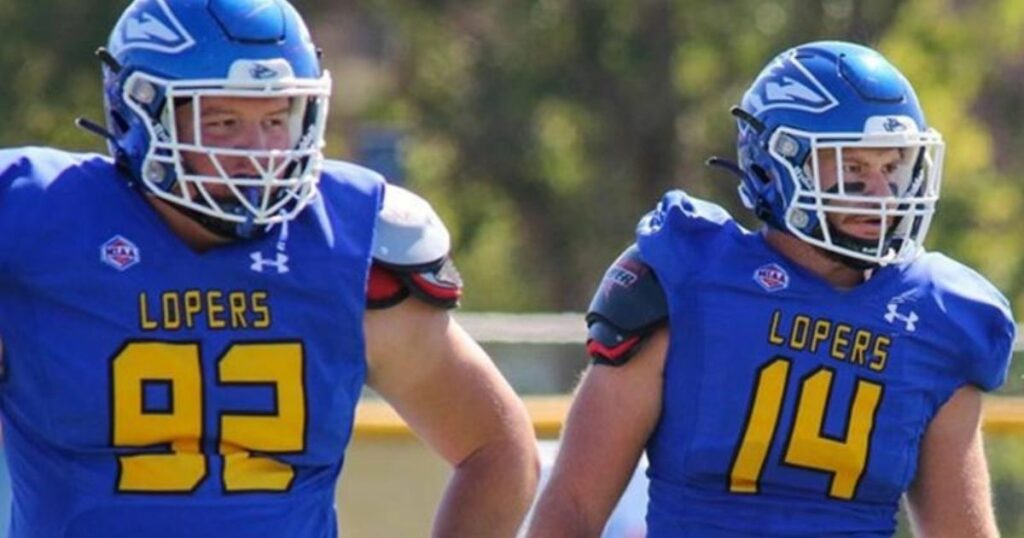
A Healthy Lifestyle for a Long Career
Maintaining a healthy lifestyle is not just beneficial for overall well-being, but it’s also pivotal in ensuring a long and successful career, particularly in physically demanding professions like football.
By integrating healthy habits into your daily routine, you can enhance your professional success and longevity.
Your body is your biggest armor and tool, so take care of it! Your future self will thank you for that.
Want Assistance from The Nebraska Greats Foundation?
The NGF only covers qualified medical expenses such as insurance deductibles, pre and post-operative care, travel to and from treatments, prescriptions, rehab, and facilities directly related to the medical condition.
Any formal letter winner from any of the four Nebraska-based colleges or universities (including the former Dana College) with a medical and financial need is eligible to apply.
Keep Contributing to the Sports Community with the Nebraska Greats Foundation.
If you are looking for a way to contribute to your local sports community in Nebraska, then we are your best choice!
At the Nebraska Greats, we help athletes with medical and financial assistance when they are in need.
We recognize the effort put in by athletes every day to make Nebraska one of the biggest sports states in the country, and we believe in giving something back.
Our mission is not only to provide aid but also to create a safe space where athletes can be vulnerable and overcome their struggles in the right way.
By doing so, we aim to preserve their legacy and inspire future generations of athletes.
